One of your first steps is knowing the eligibility requirement and preparing for it accordingly. There are some specific requirements that may differ from one course to another. You can look them up, here. However, there are certain general criteria that you need to qualify for, before even considering applying to the University of Oxford. Let us take a look.

For Undergraduate Admissions
1. Academic Subject-Specific Requirements: What Oxford wants is a minimum qualification of 10 + 2.
If you have studied in the IB (International Baccalaureate) system, then you will know the A-level exams and the A*, A grading scheme. There are three groups of courses at Oxford. The first requires A*A*A. The second set is A*AA and the third AAA.
Let us translate those admission requirements into CBSE and CISCE (ISC) standards.
| IB |
CBSE |
ISC |
| A*A*A |
Grades A1 A1 A1 A1 A2, with grade A1 in any subjects relevant to the course applied for. |
Overall grade of at least 90%, with 95% or above in four subjects (including any relevant to the course applied for) and 85% or above in the fifth subject. |
| A*AA |
Grades A1 A1 A1 A2 A2, with grade A1 in any subjects relevant to the course applied for. |
Overall grade of 90% or more, with grades of at least 95% or above in three subjects (including any relevant to the course applied for) and 85% or above in the other two subjects. |
| AAA |
Grades A1 A1 A2 A2 A2, with grade A1 in any subjects relevant to the course applied for. |
Overall grade of 90% or more, with grades of at least 95% or above in two subjects (including any relevant to the course applied for) and 85% or above in the other three subjects. |
Note: Oxford University does not accept or consider State Board Exams.
2. English Language Proficiency: Besides your high school certificates, the next essential requirement is proof of your English language proficiency test. The University of Oxford accepts TOEFL, IELTS and the Cambridge Tests. Depending on the course that you are applying to, you need to either take up the standard level or show proof of higher English proficiency.
IELTS – Overall score of 7.0 with at least 6.5 in every section.
TOEFL – Overall score of 100. The minimum score in each section should be 22 in listening, 24 in reading, 25 in speaking and 24 in writing.
CAE (Cambridge Certificate of Advanced English) / CPE (Cambridge Certificate for Proficiency in English) – Overall Score of 185 with a minimum of 176 in each section.
IELTS – Total score of 7.5 with 7.0 in every component.
TOEFL: Total score of 110 with 22 in listening, 24 in reading, 25 in speaking and 24 in writing.
CAE (Cambridge Certificate of Advanced English) / CPE (Cambridge Certificate for Proficiency in English) – Overall Score of 191 with a minimum score of 185 in each component.
3. Other Requirements
- Your SAT/ ACT or other standardised test scores which are subject-specific.
- Some courses in the university have entrance admission tests. Give yourself enough time to prepare for it and apply for it at the earliest.
- Statement of Purpose (SOP) and/ or academic essays that will be evaluated along with your application. Your written work will be scrutinised thoroughly.
- Letters of recommendation (LORs). Both SOP and LOR need to be in the university-prescribed format.
- In addition to yours As or A*s, it is important to showcase a clear interest in research and furthering your academic prospects. Taking up smaller research projects, expanding your choices in reading and demonstrating your critical thinking skills can also boost your application.
- It is important to note that UK universities do not place the same high value that USA universities place on extracurricular activities. UK universities have fewer sports scholarships. While extracurricular activities can be useful to diversify your application essay, your academic performance is what the admissions committee primarily looks for.
For Graduate and Postgraduate Courses
If you are applying to Oxford University for a Master’s program or higher, these are the criteria that you need to satisfy.
1. Academic Subject-Specific Requirements: Your graduate course at Oxford might require one of the two: “first class undergraduate degree with honours” or “strong upper second-class undergraduate degree with honours”.
If it is a first class undergraduate degree with honours, you will need a professional bachelor’s degree (4 years) from a recognised institution with an overall grade of 65% for degrees awarded by prestigious institutions (Institutions of National Importance), or 75% for degrees awarded by other institutions; or 3.5 out of 4.0, 5.5 out of 7.0, 6.5 out of 8.0 or 8.5 out of 10.0.
a standard bachelor’s degree (3 years) from a recognised institution with an overall grade of 70% for degrees awarded by prestigious institutions (Institutions of National Importance), or 75% for degrees awarded by other institutions.
If it is a strong upper second-class undergraduate degree with honours, you will need a professional bachelor’s degree (4 years) from a recognised institution with an overall grade of 60% for degrees awarded by prestigious institutions (Institutions of National Importance), or 70% for degrees awarded by other institutions; or a cumulative GPA of 3.3 out of 4.0, 5.0 out of 7.0, 6.0 out of 8.0 or 8.0 out of 10.0; or a standard bachelor’s degree (3 years) from a recognised institution with an overall grade of 65% for degrees awarded by prestigious institutions (Institutions of National Importance), or 70% for degrees awarded by other institutions.
Source: University of Oxford, Graduate Admissions
2. English Language Requirements: The same English language proficiency skills apply, as in the undergraduate level.
Standard Level
IELTS – Overall score of 7.0 with at least 6.5 in every section.
TOEFL – Overall score of 100. The minimum score in each section should be 22 in listening, 24 in reading, 25 in speaking and 24 in writing.
CAE (Cambridge Certificate of Advanced English) / CPE (Cambridge Certificate for Proficiency in English) – Overall Score of 185 with a minimum of 176 in each section.
Higher Level Proficiency
IELTS – Total score of 7.5 with 7.0 in every component.
TOEFL: Total score of 110 with 22 in listening, 24 in reading, 25 in speaking and 24 in writing.
CAE (Cambridge Certificate of Advanced English) / CPE (Cambridge Certificate for Proficiency in English) – Overall Score of 191 with a minimum score of 185 in each component.
3. Other Requirements
- Your GRE/ GMAT or other standardised test scores which are subject-specific.
- University entrance exam, if applicable.
- Statement of Purpose (SOP) and/ or academic essays will be evaluated along with your application form. Your personal statement must be carefully drafted, keeping in mind the format prescribed by the university. It must be original, well-written, and carefully edited. It is your personal statement that will make you stand out among the thousands of other applicants.
- Letters of recommendation (LORs). Both SOP and LOR need to be in the university-prescribed format.
- Certificates of work experience relevant to the course you are applying to.

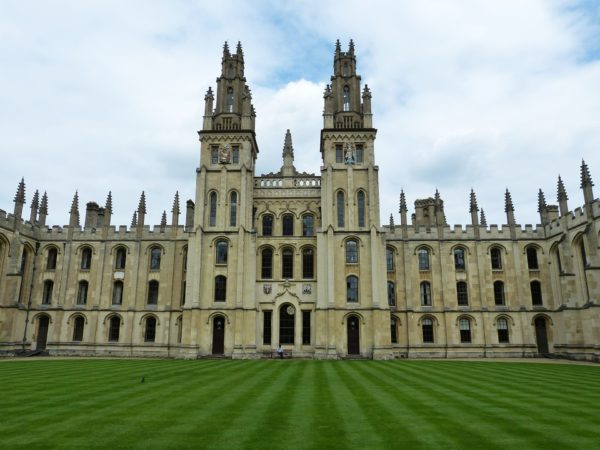









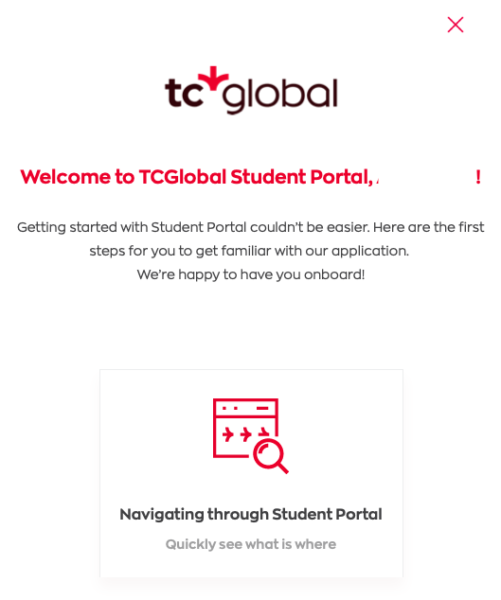
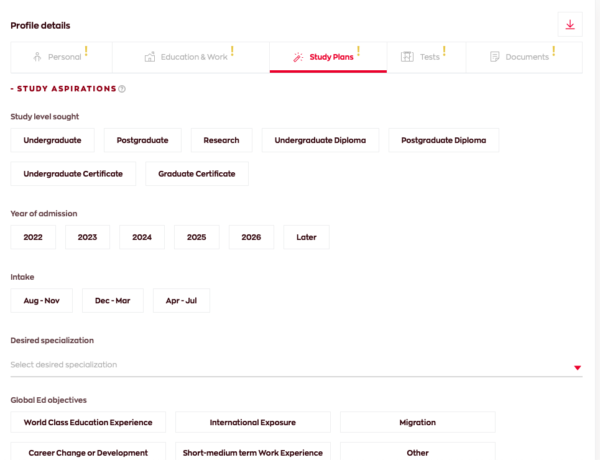
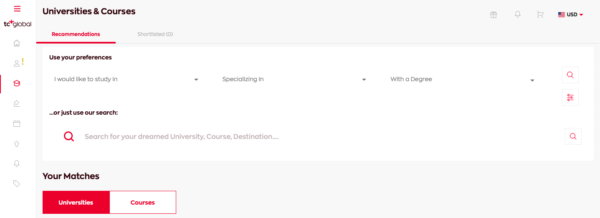
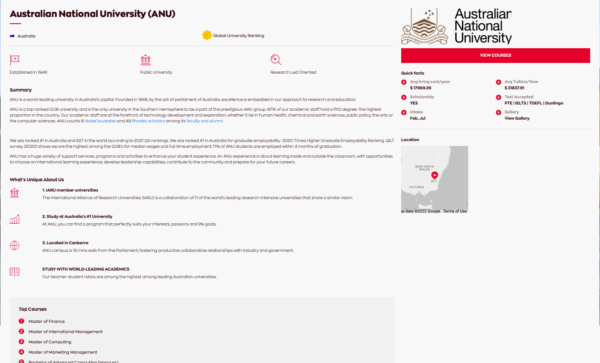
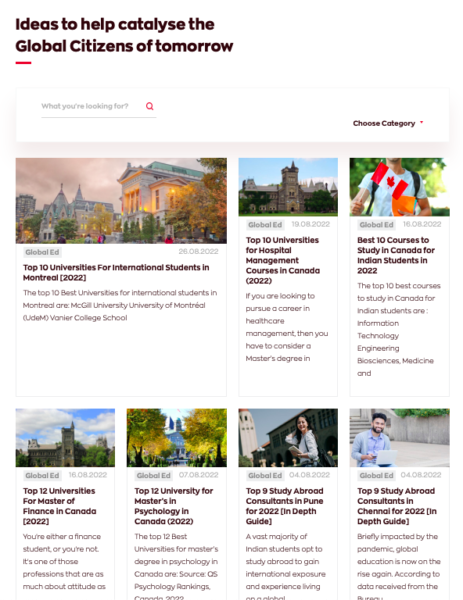
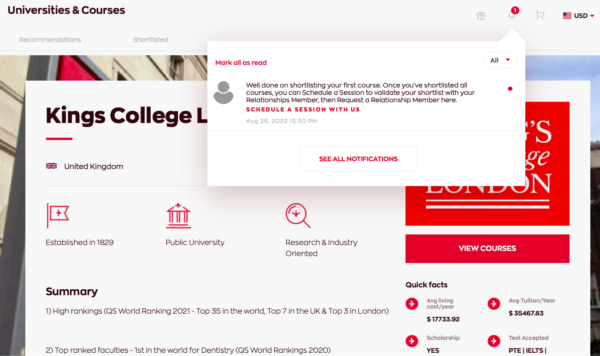






![Best Universities in New Zealand for International Students [2025 Rankings]](https://tcglobal.com/wp-content/uploads/2025/09/Best-Universities-in-New-Zealand-for-International-Students-2025-Rankings-600x338.png)